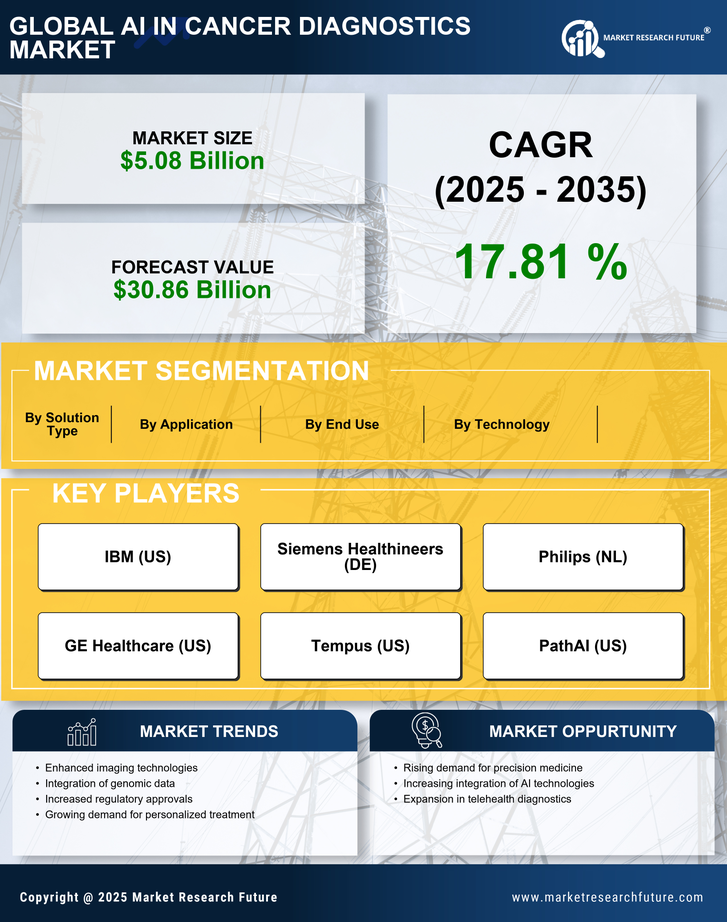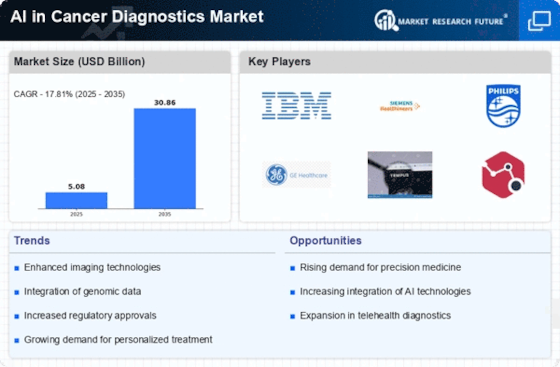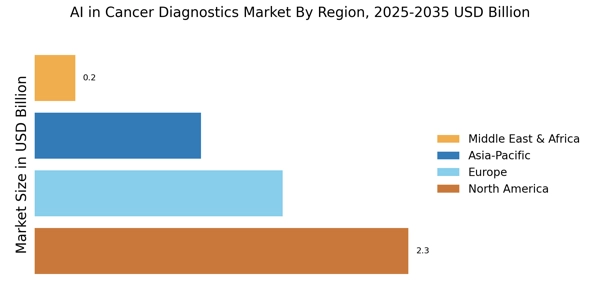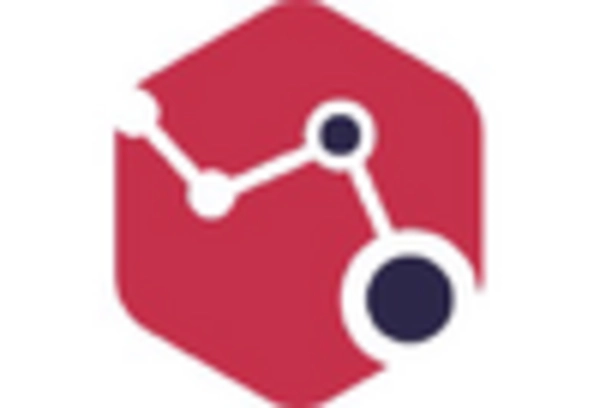Rising Incidence of Cancer
The increasing prevalence of cancer worldwide is a primary driver for the AI in Cancer Diagnostics Market. According to the World Health Organization, cancer cases are projected to rise by 70% over the next two decades. This alarming trend necessitates advanced diagnostic tools to enhance early detection and treatment outcomes. AI technologies, with their ability to analyze vast datasets and identify patterns, are becoming indispensable in this context. The demand for efficient and accurate diagnostic solutions is likely to surge, propelling the growth of the AI in Cancer Diagnostics Market. As healthcare systems strive to manage this growing burden, the integration of AI into diagnostic processes appears to be a strategic response to improve patient care and optimize resource allocation.
Technological Advancements in AI
Rapid advancements in artificial intelligence technologies are significantly influencing the AI in Cancer Diagnostics Market. Innovations in machine learning, deep learning, and natural language processing are enhancing the capabilities of diagnostic tools. For instance, AI algorithms can now analyze medical imaging with remarkable precision, often outperforming human radiologists. The market for AI in healthcare is expected to reach USD 36.1 billion by 2025, indicating a robust growth trajectory. These technological improvements not only facilitate faster and more accurate diagnoses but also reduce the workload on healthcare professionals. Consequently, the integration of cutting-edge AI solutions is likely to drive the expansion of the AI in Cancer Diagnostics Market, as stakeholders seek to leverage these advancements for better patient outcomes.
Regulatory Support and Frameworks
Supportive regulatory environments are emerging as a significant driver for the AI in Cancer Diagnostics Market. Governments and regulatory bodies are increasingly recognizing the potential of AI technologies in improving healthcare outcomes. Initiatives aimed at streamlining the approval processes for AI-based diagnostic tools are being implemented, which could facilitate faster market entry for innovative solutions. For example, the FDA has established guidelines for the evaluation of AI algorithms in medical devices, promoting a more efficient regulatory pathway. This supportive framework is likely to encourage investment and innovation within the AI in Cancer Diagnostics Market, as companies seek to navigate the regulatory landscape more effectively and bring their products to market.
Growing Investment in Healthcare AI
The surge in investment directed towards healthcare AI solutions is a crucial driver for the AI in Cancer Diagnostics Market. Venture capital funding for AI in healthcare has seen exponential growth, with investments reaching approximately USD 4 billion in recent years. This influx of capital is fostering innovation and accelerating the development of AI-driven diagnostic tools. As stakeholders recognize the potential of AI to transform cancer diagnostics, funding is likely to continue to increase, enabling the creation of more sophisticated and effective solutions. This trend not only enhances the competitive landscape of the AI in Cancer Diagnostics Market but also encourages collaboration between technology firms and healthcare providers, ultimately benefiting patient care.
Increasing Demand for Early Detection
The growing emphasis on early cancer detection is a pivotal driver for the AI in Cancer Diagnostics Market. Early diagnosis significantly improves treatment success rates and patient survival, leading to a heightened demand for advanced diagnostic technologies. AI systems, capable of analyzing complex data and identifying subtle patterns, are increasingly being adopted to enhance early detection efforts. The market for AI in cancer diagnostics is projected to grow at a compound annual growth rate of 40% through the next several years. This trend underscores the critical role that AI technologies play in transforming cancer diagnostics, as healthcare providers seek to implement solutions that facilitate timely interventions and improve patient outcomes.


















